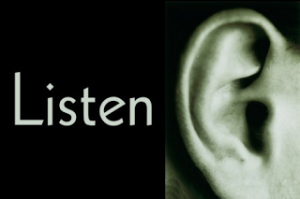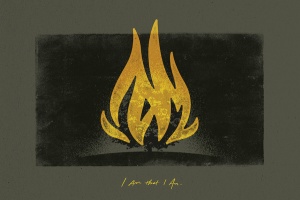Exploring the Word:
Sermon – September 7th 2014
13th Sunday after Pentecost
By Roland Legge
Romans 13:8-14
Matthew 18:15-20
How many of us love conflict? I think the majority of us do not like it, except for a few people who thrive on it. Yet conflict has an important role to play in our communities. If we never had conflict there wouldn’t be any personal growth. If we didn’t have conflict we would not have healthy relationships. If we didn’t have conflict we would stop growing as God’s people.
Jesus knows this only too well! So in our Gospel lesson we learn how faith communities can grow from conflict. The trouble is that many of our churches try to hide from conflict which only makes things worse. It makes things worse because avoidance doesn’t resolve the conflict. The energy created by conflict is just left to fester making it come out at unexpected times on issues that have nothing to do with the original issue. When conflict is hidden it often will come out in very destructive ways.
Jesus shows us a simple way to resolve conflict. The first one is to go and talk to the person you have conflict with, using “I” statements to clearly name what upset or hurt you. So for example, if you were upset because you felt excluded from the decision about what color to paint the basement of the church, here is what Jesus would suggest you do: first you would clarify what you were upset about. If you still deemed the issue serious enough you would go and talk to the chair of the Property Committee. If you have good reason to be upset and the person does apologise to you after a conversation where each party was allowed to share their point of view you are to forgive them. However, if they don’t forgive you, you are go to the next step.
Jesus then suggests that you find two or three people, such as our Ministry and Personnel Committee. Remember God says when two or three people are together God is present. The idea is that through prayer and open conversation the conflict can begin to be resolved. If you are able to resolve the issue at this level you again forgive and reconcile with the person or persons.
But what do you do if it does not get resolved through the Ministry and Personnel Committee? Jesus suggests that you need to take it to the whole church. In our United Church Polity it would need to go to the Board or to the Presbytery.
At all these levels, conflict needs to be addressed with great care. Again we need to speak very clearly and from our own point of view. We are not to call each other names. We need to respect the fact that it is normal to have different opinions. We need to find solutions that are respectful of all who are involved. It needs to be a win-win solution.
Resolving conflict takes time. I love how the Religious Society of Friends uses Consensus Decision Making as a process to decide the direction of each Friends Meeting or Yearly Meeting which is like our General Council. When a proposal is made, people get to ask questions for clarification. They get to ask questions about why this proposal is important. They get to discuss if there are better ways to do this. They patiently wait until everyone has had their say. Throughout the process people need to keep checking to see if consensus has been reached. There may need to be amendments made to make the proposal acceptable to everyone. But once people come to a place where everyone can live with the decision then consensus is reached. What I like about consensus is that when the decision is made everyone can get behind it and make it happen. You will no longer have any 51 % to 49% decisions that can seriously divide the community.
Often forgiveness takes time too. It is more often a process that allows us the time to forgive ourselves and others. If it is a serious offense we may get no further than not allowing the negative/destructive energy of the offense to hurt our present and future relationships. Forgiveness does not always mean that we can renew the relationship.
I believe Jesus calls us to be a community where we can openly struggle, laugh, pray our way to decisions that will be of benefit to the whole community. It doesn’t mean we get it right all the time. But when we don’t get it right we will rise to the occasion and make the changes needed. But in order to find consensus we all need to be willing to give and take. The bottom line is that we need to be able to live with the decision.
God has blessed each of us with power. Power in and of itself is neither good nor bad. More important is how we use that power. We all want to be able to impact the world around us. God desires for us to share our power with others and come up with solutions that seek the highest good for the community.
I can think of one conflict that took place in the Vancouver Friends Meeting. In 1983, when Vancouver hosted the Assembly of the World Council of Churches, the Friends (Quakers) participated. At the end of the Assembly, each participating church who helped to organize the gathering in Canada received a chalice. For Quakers this raised a serious question as “Friends” don’t have communion as a ritual. Some people were incensed and wanted to return it. Some people wanted to keep it. Those who wanted to keep it had various ideas as to what to do with it. The whole event created a lot of controversy. But after a lot of prayerful deliberation it was decided to put the chalice into the Quaker Museum at the Friends Meeting House in Toronto. In the end everybody was able to live with decision.
In the months and years ahead we as a congregation will have some major choices to make. The Spirit may be calling us to talk about things that many of us won’t feel comfortable in talking about. Yet God calls us too openly and compassionately to talk about things prayerfully—even if we have to risk conflict. Conversations may free us up to be the church in new ways that will be inviting to our younger generations, many of whom have moved away from the church. What are those sensitive subjects in our church?
I pray that we will take seriously the teachings of Jesus that will show us the way to the Kindom of God. May the Spirit give us the courage to speak what we think and yet be given the openness and tenderness to hear different points of view. May we be given the wisdom to seek new paths for our church and world. May we be given the courage to experiment with new ways of being church. May we continue to pass on the Good News of Jesus! The Good News is that there is a better and more joyful and just way to co-exist in this world with all of God’s Creation. So be it! Amen.

